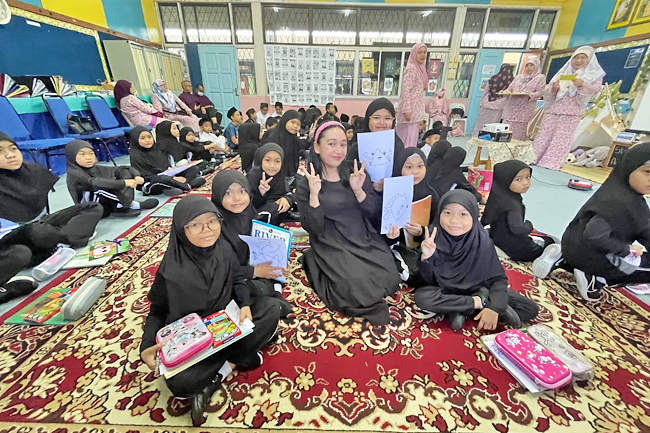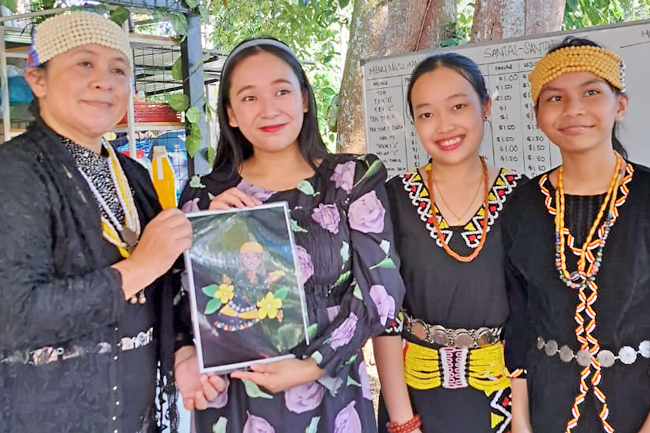We are walking stories. Each stitch of clothing, each wrinkle at the corner of the eye, each tousled strand of hair tells the story of your day. It’s something inherently human – these narrative threads we carry, both within and around us, that connect us and help us empathise with one another in moments when we meet, collide or simply pass by.
But what about the stories of individuals we seldom see, whose lived experiences are so unique they risk becoming exclusionary? How can we relate to and empathise with those living with cancer, autism or other conditions that set them apart?
Local author Tina Afiqah seeks to address this through her upcoming children’s book series, Mighty Hearts. The series not only aims to shine a light on underrepresented communities but also encourages their members to engage more confidently with the world.
Mighty Hearts, Tina explained, is a soon-to-be-published series focusing on children living with various illnesses and diagnoses.
“There are numerous communities and non-governmental organisations – many self-funded – working tirelessly for these causes,” she shared, but they need more support, noting that garnering a public appeal has its difficulties, one more likely born of ignorance rather than malice.
“It can be challenging for people to empathise with situations that don’t directly affect them,” she said.


“Often, the urgency to take action comes from connecting to a relatable story. You don’t need a relative with autism to understand their challenges, but by grasping their story and why people advocate for them, it creates a much deeper connection.”
Thus, Mighty Hearts was born. For Tina, who runs her own independent publishing venture, Parabelle Studios, this project felt like a natural calling, especially considering her background and her pursuit of a Bachelor’s degree in Creative Therapy in the United Kingdom.
As a creative therapist, Tina has worked with children who have special educational needs during her time there.
Initially, her passion for writing stemmed from a desire to preserve the stories of the elderly indigenous communities in Brunei, inspired by the many dialogues she had with her Murut grandparents upon returning from her studies.
However, as she recognised the evolving landscape of readership – particularly regarding local folktales – she shifted her focus from novels to children’s books that celebrate various aspects of Bruneian culture including local indigenous folklore.
She hoped this more visual medium would resonate with young readers, and it certainly did.
“Our previous children’s books focused on Bruneian proverbs, incorporating animals that children adore, making it a fun and engaging way to introduce these local sayings.”
When the opportunity to work on the new series arose, it felt serendipitous, allowing her to “stick to the theme of parables” – which inspired the name of her publishing venture.
These short, simple stories convey moral or spiritual lessons, perfectly reflecting the essence of what the series aims to evoke.
“The aim is to raise awareness about children with various health conditions and diagnoses, helping the public recognise their existence in Brunei and encouraging support for them,” Tina continued, adding that the series also serves as a platform for these communities to crowdfund their initiatives.
To ensure authenticity and a genuine retelling of these stories – considering all those involved in these tales of adversity, from the children to their parents and caregivers – Tina has collaborated with several local non-profits that champion various disabilities.
These include Autism Without Borders, which began as an online support group for parents in 2014 and evolved into Our Pathways in 2021, providing formalised support like coaching, training, and workshops for the autism-neurodiverse community.
Another partner is the Learning Ladders Society, a non-profit established in 2007 by dedicated parents committed to advocating for public education and offering information and support to children with autism.
Additionally, there is MuBN, which specialises in delivering competency-based workshops.
Through her collaboration with these different communities, the author has gained insight into the ultimate sacrifices parents make, learning many stories of parents who leave lucrative careers to provide full-time support for their children.
Moreover, due to the unique challenges they face, many families – especially mothers of children with disabilities – tend to seek each other out for support, which is unfortunate.
“It’s sad that mothers often feel confined to their communities, only able to talk to other parents of children with similar challenges,” she said.
Hoping to launch the series this Sunday at the Health Promotion Centre, Tina also aims for the event to encourage families to feel more confident reaching out and engaging with the wider public.
The event will also feature neurodiverse students and individuals, showcasing their capabilities and encouraging community empowerment.
“By providing a platform to display their work, we want to boost their confidence, starting small and gradually opening up to the general public. This is a step towards acceptance for these communities, their children, and society as a whole.” – Wardi Wasil


